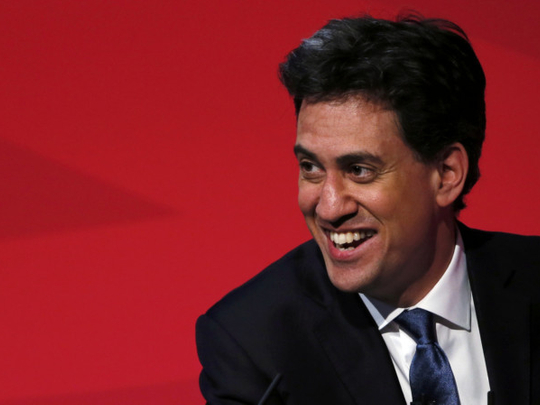
Although the outside world has featured prominently in the news during the election campaign, and Europe will be high on the agenda afterwards for whoever wins, foreign policy has barely raised its head so far. Until today that is, when Ed Miliband gave a wide-ranging speech at the London thinktank, Chatham House.
In so doing, he not only made a claim to occupy the campaign space where foreign policy should have been; deliberately or not, he also highlighted a difference between himself and his rival for No 10 in substance and expertise.
While Cameron may be an accomplished manager and decision-maker, he has tended to leave the hands-on diplomacy to Nick Clegg and the small print of policy, especially foreign policy, to his ministers.
Miliband showed a grasp of the big and the small picture that may have reminded at least some of those in the audience of something they had been missing.
This is why it was a pity that some over-enthusiastic and perhaps ill-advised advance “selling” of his speech for the media’s benefit meant that what was in fact a considered tour d’horizon was eclipsed by lurid headlines about Miliband blaming David Cameron for the deaths of thousands of migrants in the Mediterranean.
The same exaggerated sales pitch also meant that Miliband was compelled to spend much of his question and answer session trying to draw a distinction - an entirely valid distinction, it should be said - between blaming the prime minister for not doing enough to help create a post-Gaddafi state in Libya and holding him directly responsible for mass drownings.
It is true that Miliband’s speech covered familiar terrain - from Europe, through Libya and, yes, Iraq - as in “I will be a post-Iraq prime minister” - to Syria, and Russia and Ukraine. But it also contained very specific efforts to set the record straight.
This included a direct reply to the recent accusation from the defence secretary, Michael Fallon, that the Labour leader would jeopardise the UK’s defences, by insisting that he supported the renewal of Trident and would not cut the armed forces further.
It also included a repeated insistence that he was not anti-intervention as such, but that military intervention had to be carefully thought through and - crucially - followed up. It was in the question and answer session, though, that Miliband showed his mettle - and afforded a glimpse not only of how much work both he and the shadow foreign secretary, Douglas Alexander, have invested in his preparation for the top job, but - perhaps - of a foreign policy prime minister in the making.
He showed a depth of knowledge, and a genuine interest in the details and the dilemmas. I am not saying this, by the way, because I agree with all he said. His call for tougher action on Russia, to my mind, is misguided and based on a misreading. But it was refreshing to hear a leading politician talk about foreign policy as though it mattered.
Miliband’s foreign policy address will probably not change either the dominance of the domestic agenda in the election campaign or the terms of the foreign policy debate, such as it exists in the UK at present. Nor will it win - or lose - him the election. But it does potentially introduce new substance to the foreign policy debate that there will undoubtedly be after the election, if only about Europe, and that is to the good.
Ever since Miliband won the Labour leadership, there have been those, especially among the party’s Blairites, bolstered by their supporters in the media, who have maintained that Labour got “the wrong” Miliband. Ed Miliband’s performance at Chatham House today - whether or not you agreed with him - suggests that it is time to turn the argument on its head. Perhaps it was the wrong Miliband who was made foreign secretary and presumed therefore to be heir apparent. Maybe in the end Labour got the “right” Miliband after all.
Guardian News & Media Ltd, 2015










